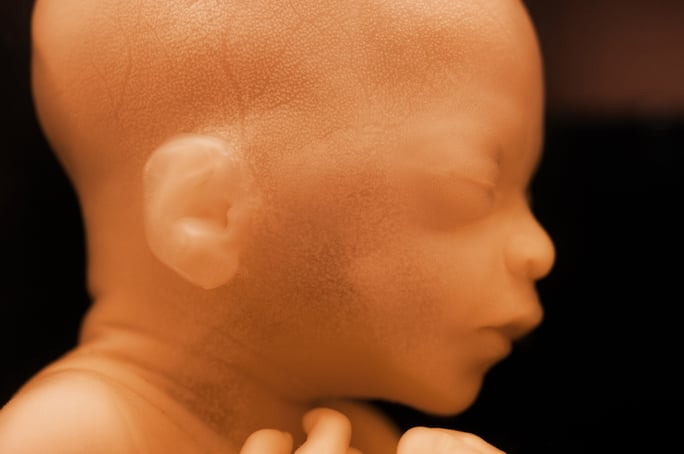Roe v. Wade Overturned: What’s the Future of Abortion in America?
The Supreme Court has ruled on the Dobbs v. Jackson case. What does this decision mean? Will it end abortion? What’s God’s perspective on abortion?

On Friday, June 24, 2022, the U.S. Supreme Court issued its opinion in the Dobbs v. Jackson Women’s Heath Organization case. The opinion sent shock waves around the country as it overturned two previous Supreme Court decisions: Roe v. Wade (1973) and Planned Parenthood v. Casey (1992).
The case centered around a law passed in 2018 by the state of Mississippi that banned abortions after 15 weeks of gestation. Opponents argued that the law was unconstitutional based on Roe v. Wade, which decided that abortion is a constitutional right guaranteed by the 14th Amendment of the U.S. Constitution.
The completely divergent views illustrate the deep political and moral divisions within the United States. Some have even argued that the United States is essentially two different countries that will never be reconciled and that continue to drift further and further apart.
What the decision does and doesn’t do
Sadly, in our shallow culture of sound bites and tweets, issues are often oversimplified and politicized so much that the actual reality is lost—or hard to discern.
From reading the posts of the pro-life side, one could gather that this decision is fundamentally pro-life and that abortion in the United States will end immediately.
From reading the posts of the pro-choice side, one could conclude that this decision was made as a direct attack on females everywhere and that all abortions will now be confined to dangerous and shady underground clinics.
Neither characterization reflects the reality of what the decision actually says.
To be clear, the Dobbs decision did not ban abortion in the United States. It simply concluded that abortion is not a right guaranteed in the U.S. Constitution and that the legality and morality of abortion should be determined by the people of each state through the political process.
“It is time to heed the Constitution and return the issue of abortion to the people’s elected representatives. ‘The permissibility of abortion, and the limitations, upon it, are to be resolved like most important questions in our democracy: by citizens trying to persuade one another and then voting.’”
A more detailed summary is found on page 73:
“Our decision returns the issue of abortion to those legislative bodies, and it allows women on both sides of the abortion issue to seek to affect the legislative process by influencing public opinion, lobbying legislators, voting, and running for office. Women are not without electoral or political power. It is noteworthy that the percentage of women who register to vote and cast ballots is consistently higher than the percentage of men who do so.”
So, it is important to understand that, far from being an opinion that defends the sanctity of human life or declares abortion murder, the ruling simply shifts the issue from the judicial process to the legislative and political process.
This landmark decision does not end the abortion debate in United States—it merely politicizes it further. The battle will continue to rage on for years to come—at a much more heated level. In many ways, it has begun anew with a wider battleground.
Abortion will not end because of this ruling, but it will become more limited in some states and likely more available in other states. It will embolden both sides to fight even harder for their positions through the political process, and it could become an issue where state and federal laws will go back and forth for the foreseeable future.
It will also likely result in the creation of an organized network providing transportation and funding for women desiring abortions to travel to states where the procedure remains legal. It could also create an entirely new industry of abortion clinics opening just across the borders of abortion-restricted states.
The biblical perspective on abortion
Though the Supreme Court is correct in its assessment that abortion is not found in the U.S. Constitution, the idea that the morality of abortion should be determined by the collective will of the people demonstrates a dangerous weakness of democracy—and of all human governments.
Much of the abortion debate centers on the issue of when human life begins. 
The Bible teaches that human beings were created “in the image of God” (Genesis 1:27) and are born with the potential to be in God’s eternal family (Hebrews 2:10). God does not consider a child in the womb as a “potential life” or as simply an accumulation of lifeless tissue—He considers an unborn child as a human life (Genesis 25:22-24; Psalm 139:13-16; Jeremiah 1:5; Luke 1:13-15).
In his Gospel, Luke describes the unborn John the Baptist as “the babe” (Luke 1:41, 44)—the exact same word he used to describe Jesus after His birth in Luke 2:16. God’s Word doesn’t make a distinction between a fetus and a baby.
A human life is a human life—regardless of whether it exists inside or outside a mother’s womb.
The destruction of human life is called “murder” and breaks the Sixth Commandment: “You shall not murder” (Exodus 20:13).
For more insight on the biblical perspective on abortion, read “Is Abortion Wrong?”
The deeper problem behind abortion
But we must also consider that abortion isn’t a sin that exists in a vacuum. In fact, it is really the tip of a much larger iceberg.
Abortion is typically performed as a result of the sin of fornication—sex outside of marriage. According to a 2010 study on why women seek abortions, the majority of abortions occur because women feel they are not financially prepared or that the time is not right. A large percentage can also be attributed to women not feeling they have the emotional support of their partner. (For more insight on the reasons often given for abortion, read “Abortion: New York Law Sparks More Controversy.”)
God does not consider a child in the womb as a “potential life” or as simply an accumulation of lifeless tissue—He considers an unborn child as a human life.
This is where many pro-life advocates are often misguided in their singular focus on opposing abortion. Their ire seems directed solely at the decision of the mother—and seems to ignore the responsibility of the father or the issue of the fornication that resulted in the pregnancy in the first place.
Pro-life advocates don’t seem to focus on advocating and teaching the standards of sexual morality that are at the core of the abortion issue. And they are rarely seen to take men to task for their part in selfishly impregnating women and taking no responsibility afterward. Irresponsible males are just as accountable for the sin of abortion as the females who feel they have no choice but to end their pregnancies.
From God’s perspective, it isn’t enough to just be pro-life. We must be pro-righteousness. Being pro-righteousness means defending and teaching all of God’s standards of morality—not having a singular focus on just one sin.
Our Creator created sex to be enjoyed by a husband and wife only within the safe and loving confines of marriage. Any time His standard is broken, the result will be misery, suffering and other sins. Abortion is usually a consequence of those sins.
To learn more about the Bible’s teachings on sexual morality, read:
Abortion is just one of the sins that plagues our world—particularly the Western nations. Our peoples will face national punishment for the sin of abortion—as well as the many other sins our peoples practice and flaunt. Those sins include rampant sexual promiscuity, gun violence and an overall rejection of God’s standards of morality.
The real solution to abortion
The Dobbs decision will not solve the abortion problem in the United States. In fact, it’s likely to lead to more and more hatred and division within this country. Jesus said, in Mark 3:25, that “if a house is divided against itself, that house cannot stand.”
The United States is on the road to destruction because of its national sins, and because of its divisions and the seething hatred and anger that both sides of those divisions have for each other. To learn more about our national sins and their consequences, read “5 Ways Our Culture Is Rejecting Biblical Morality” and “Why Is God Angry With America?”
There is only one real solution to the abortion issue: the return of Jesus Christ.
There is ultimately great hope in store for all the millions of infants whose lives were ended before birth—a resurrection of all who have ever lived.
Jesus Christ will not return and consult the U.S. Constitution or the American electorate to decide the future of abortion. As King of Kings and Lord of Lords, He will teach and establish His law throughout the world.
People will learn “His ways” and “walk in His paths,” as the law of God is taught and spreads throughout the globe from Jerusalem (Micah 4:2).
His law will not just deal with the sin of abortion by making it a punishable offense. Instead, His government will address the problem at its root—by establishing and teaching His laws of morality and reestablishing the nuclear family as the central building block of society.
He will not just address the tip of the iceberg of this sin—His government will address the entire problem, from top to bottom.
And there is ultimately great hope in store for all the millions of infants whose lives were ended before birth—a resurrection of all who have ever lived. Interestingly, the book of Revelation describes that resurrection as including “the small and the great” (Revelation 20:12, emphasis added). The “small” will include all those children who have been aborted.
They will live again.
Abortion did not permanently end those babies’ lives; it just temporarily delayed them.
Hope for those who’ve had an abortion
If you have had an abortion and experience deep pain, sadness and regret from it, there is hope for you and your child. There are two truths we want to share with you:
First, you can repent of that sin and be forgiven. Abortion, and the root sin at its cause, is not unforgivable. To learn more about repentance, read “How to Repent.”
Though you can’t bring that child back in this life, you can live with the hope that your sin can be forgiven and that your child will live again.
Focus on the real solution
The Dobbs decision will save the lives of some unborn children for the time being, and that is a positive thing. But it is far from a solution to the problem of abortion—and it is not the last word on this issue in American society. All it has done is renew the debate and shift the political battlefront.
Christians should not place their faith in human political or judicial systems to solve the problems that plague our society. By looking to human solutions, we lose sight of the only real and true solution to abortion and all the other problems in our society.
The solution today is personal and national repentance—not just of the sin of abortion, but of all the sins at its core.
But ultimately, the only real, permanent and meaningful solution to this problem is the return of Jesus Christ to set up His Kingdom and establish a global culture not only of life, but of righteousness and truth.
iStock.com/zimmytws
Date Posted: June 27, 2022



